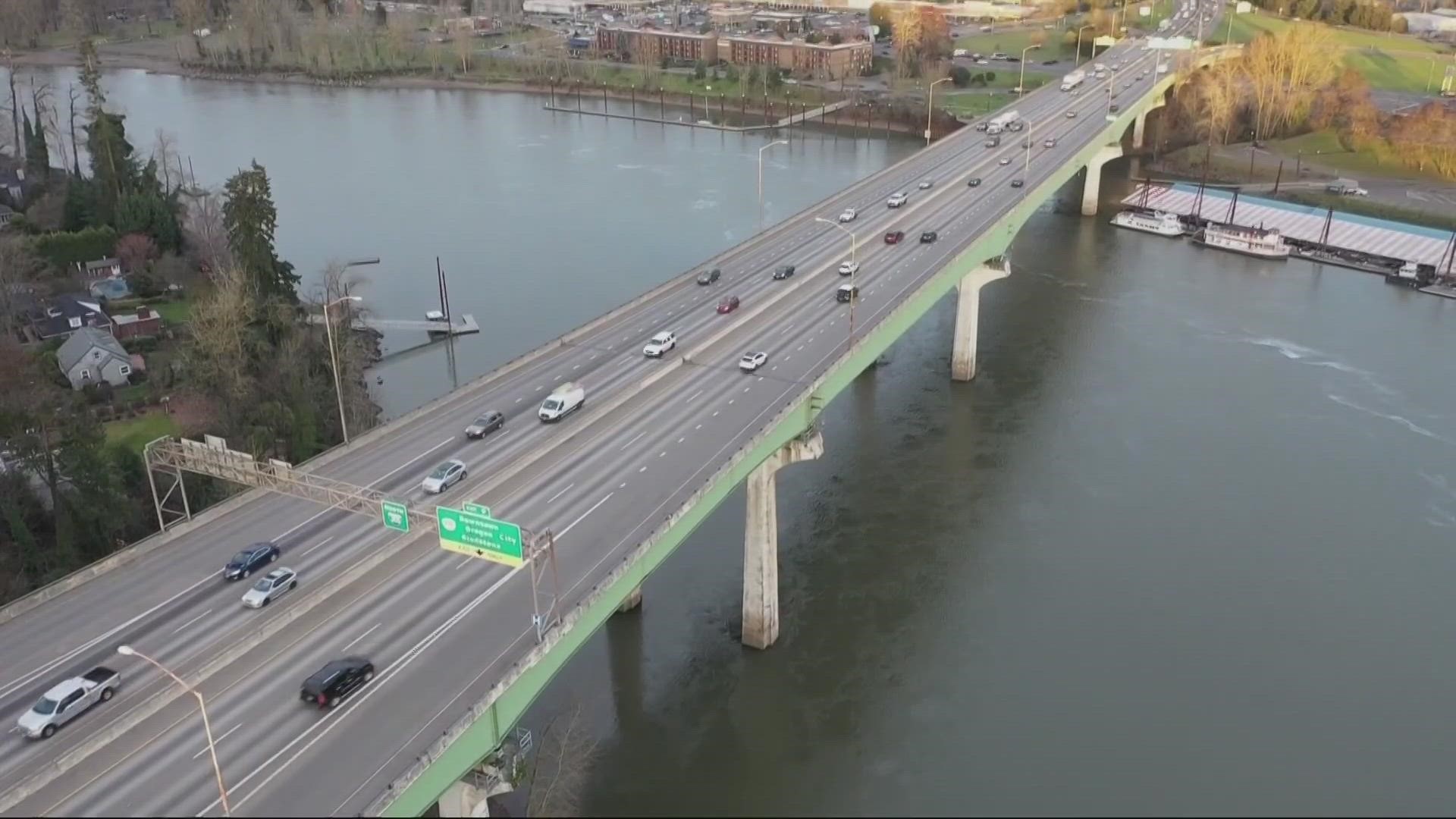WEST LINN, Ore. — Leaders for two Clackamas County cities voiced continued concerns with the Oregon Department of Transportation's Interstate 205 toll project, set to begin at the end of 2024.
In a joint meeting Tuesday, West Linn City councilors and Oregon City commissioners met to discuss a variety of topics pertaining to both places. Top of mind were tolls near the Abernethy and Tualatin River Bridges on I-205. These will be the first tolls on Portland metro area roads.
ODOT explained the money will go toward adding a third lane and making seismic upgrades to the bridges in that area. Another big goal is to reduce congestion by incentivizing drivers to plan their travel at different times of the day. The toll amount will vary, depending on the amount of traffic.
"We have a transportation problem in Oregon and the state has tried hard to fund a variety of multimodal options," said Mandy Putney, ODOT's urban mobility office strategic initiatives director. "Transit and bike and pedestrian and transportation improvements, and we need this additional tool of tolling."
As the I-205 toll project moves forward and ODOT works to identify other tolling locations on I-205 and Interstate 5, city leaders met Tuesday in West Linn to discuss the tolling with residents. They discussed the possibility of working together, along with other cities in the area, to bring ongoing concerns and questions to both ODOT and lawmakers.
"Everybody is going to be affected by this," said Oregon City Mayor Denyse McGriff. "Unfortunately the biggest impact that is going to happen with this program is going to fall squarely on the backs of the communities of West Linn and Oregon City."
Dean Suhr, a West Linn resident, leads a grassroots effort called Vote Before Tolls. He has about 5,000 signatures so far, but needs 200,000 to get his initiative on the ballot next year.
"This is not to stop those projects," Suhr said. "Now the public could vote no. But what IP-4 does is it gives the public the right to vote before tolls. What that will do is force ODOT ... to really explain how they're using those tolls, how the prices are set, how they they might sunset and go away, and so on."

